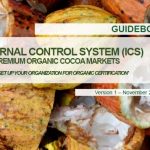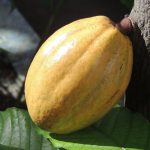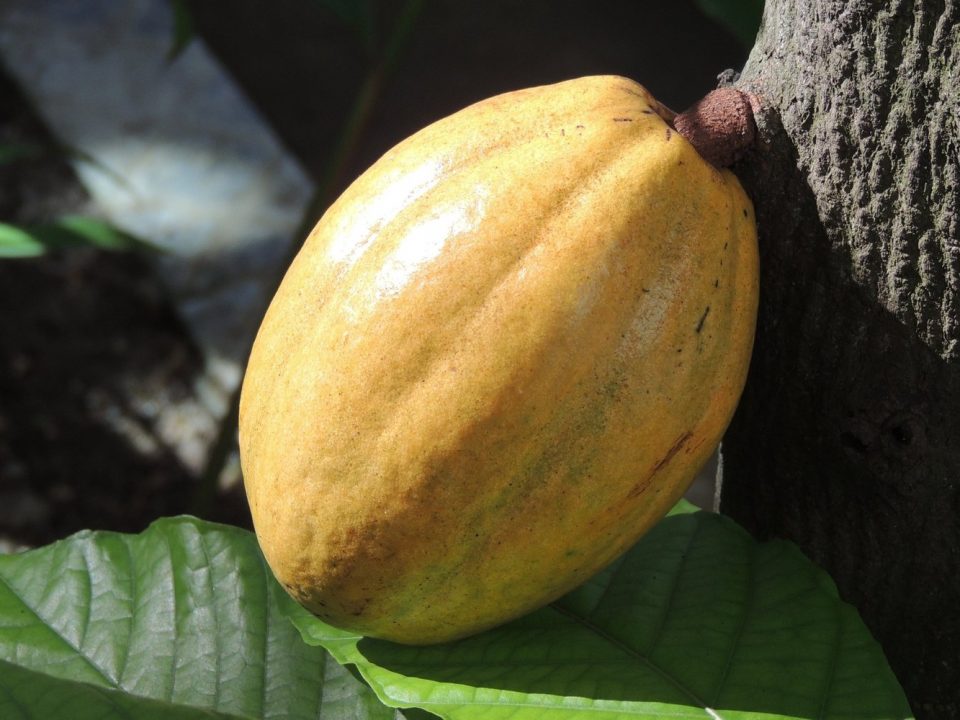
Organic ICS Manual
January 7, 2024
Importance of Alignment Behind a Single Cocoa Industry Development Vision that Includes Certification
January 7, 2024The Liberia Cocoa Corporation (LCC) is in the final stages of acquiring organic certification for its nucleus estate and 447 surrounding smallholder farmers in Lofa County.
LCC’s CEO, Lu Tolbert, decided to pursue certification because of the opportunities it presents to trade cocoa on high value markets. Through interactions with buyers introduced by GROW Liberia and the Dutch Centre for the Promotion of Imports from developing countries (CBI), he came to understand the importance of organic certification to many European buyers, and the profits it could unlock.
“The financial aspect has been our key motivation,” says Tolbert. “For the same quantity of beans, you make almost double what you would for conventional cocoa.”
LCC recently underwent a mock audit to test a new internal control system established with assistance from GROW. The real audit is planned for March 2022 and will check that the correct systems and procedures are in place for the production, processing and trade of organic cocoa. These include advanced recordkeeping so that all cocoa can be traced back to registered chemical free farms.
Farmers have also been trained in organic farm management practices including chemical free pest control and conservation, while LCC is now responsible for buying wet beans from farmers and ensuring that they are fermented and dried to a uniform standard at central processing points. This alone has proven to be a major logistical feat, and Tolbert admits there have been some challenges along the way.
“Trying to work with more than 400 farmers and get them aligned is no small feat,” he says. “Getting a basic comprehension of organic certification has been challenging. It’s still a very foreign concept for a lot of the people we are working with, especially when it comes to things like premium payments that will be awarded based on the quality of their cocoa.”
Another obstacle has been recruiting a management team from cocoa-producing communities with a sufficient level of education who are able to push ahead new approaches to farming and trade and oversee the company’s operations, from warehouse management to processing, in line with the new internal control system. The mock audit revealed the need for an additional round of training.
Completing the necessary paperwork to document traceability has been one of the biggest hurdles, but Tolbert is optimistic: “It’s new, and it comes with time.
“We’re almost there and we’re hopeful that we will be granted the certificate in March or April which is before the next harvest season,” he continues. “Then we’ll be able to export organic beans.”
Once organic certification is in place, Tolbert sees potential to tap into other high value market segments, including fine flavour. “Liberia has a lot of unique varieties,” he says. “We can market the fine flavour cocoa that we know exists here. But organic is also key for most of these markets, so we decided to go with that as our introduction to the certified world.”
His advice to other companies considering certification? “It is an investment, so you must be prepared for that. We’re splitting costs with GROW but it’s still a substantial investment for us because we’re not a huge company.”
Tolbert believes the Liberian government could help to cover these costs through grants. “The first barrier to acquiring certification is financial feasibility for companies and farmer associations. And it’s not something I think the farmers should have to pay for.”
A second key area for government intervention, he continues, would be extension services to support internal controls. “The government could establish a special unit which sends out teams to train farmers on organic practices so they understand what is expected of them.”
Another desired change, he adds, would be better road infrastructure to facilitate exports. In the past season, the cost of transporting cocoa along particularly bad patches of road from the farms has escalated. “If you’re doing everything right and you can’t get the product out then what’s the point? And that’s exactly what’s happening now in certain corridors in the country. It’s getting worse.”
But in spite of the challenges, Tolbert is optimistic given the high quality of cocoa being produced. As well as increasing his own profits and earning premiums for the farmers supplying LCC, he believes organic certification will benefit the Liberian cocoa sector as a whole.
“I think certification will add credibility to Liberian cocoa for the first time,” he says. “Word will get out that we have good quality and that will help to elevate the whole perception around Liberian cocoa.”
About GROW Liberia
GROW is an agribusiness and investment advisory agency that partners with businesses, investors, associations and government agencies to accelerate inclusive economic returns within high-growth industries in Liberia.




